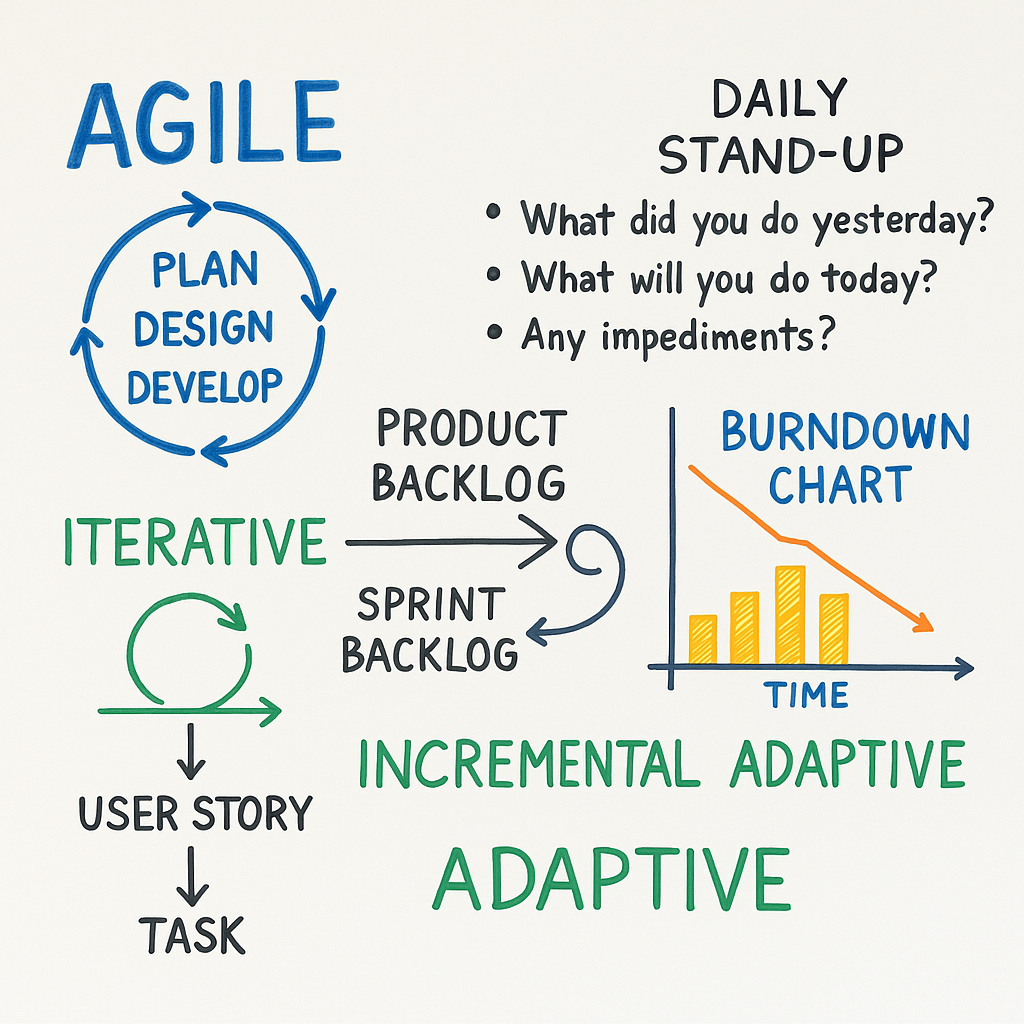





Project management is the process of planning, organizing, executing, and controlling resources (time, budget, people, materials) to achieve specific goals within a defined timeline and scope. It involves coordinating tasks, managing risks, and ensuring deliverables meet quality standards. The core components typically include: Initiation: Defining the project’s purpose and scope. Planning: Creating a roadmap with timelines, budgets, and resource allocation. Execution: Implementing the plan, coordinating teams, and managing tasks. Monitoring and Controlling: Tracking progress, managing risks, and ensuring alignment with goals. Closure: Completing deliverables, evaluating success, and documenting lessons learned. Project management is used across industries—construction, marketing, event planning, etc.—to… What is Project Management
What is IT Project Management?IT project management is the application of project management principles to plan, execute, and deliver projects related to information technology (IT) systems, infrastructure, or services. It involves coordinating resources, managing technical and business requirements, and addressing challenges like system integration, cybersecurity, and stakeholder expectations to achieve specific IT objectives within scope, time, and budget constraints.Key components include: IT project management often uses methodologies like Agile, Scrum, or Waterfall, depending on the project’s complexity and requirements.Key Aspects of IT Project Management Examples of IT Project Management Unique Aspects of IT Project Management Tools and Methodologies IT project… IT Project Management…What is it?
Spend enough time in project or product management and you’ll hear it: “Everything is high priority.” Every request feels urgent, every feature is critical, and every team insists they’re blocked until their work is done. It usually comes from good intentions—people want to move fast, deliver value, and support customers. But here’s the truth: if everything is urgent, nothing is truly a priority. And when nothing is prioritized, you’re not leading—you’re just reacting to noise. Many PMs fall into this trap. They confuse responsiveness with effectiveness. Saying “yes” to every request creates bloated roadmaps, endless distractions, and exhausted teams. Focus… Why Saying “No” Matters in Project & Product Management